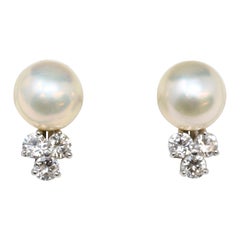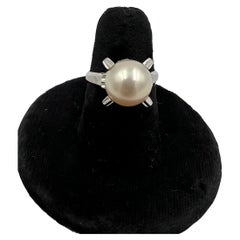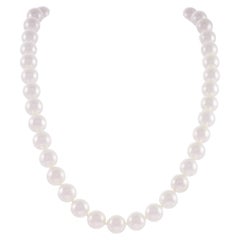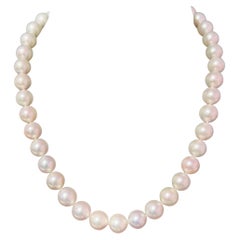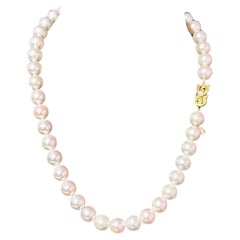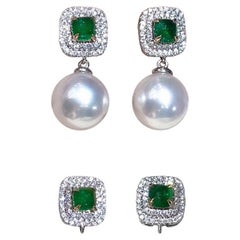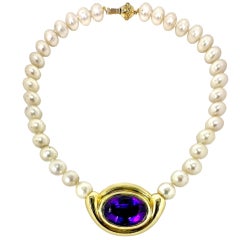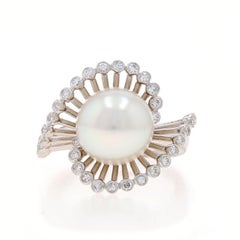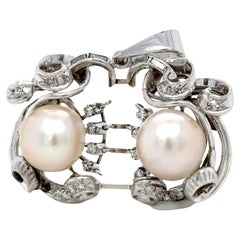10mm Akoya Pearls
20th Century Canadian Stud Earrings
Diamond, Pearl, 14k Gold, White Gold
1990s Contemporary Solitaire Rings
Pearl, Platinum
2010s Beaded Necklaces
Diamond, Pearl, Cultured Pearl, Platinum
2010s American Beaded Necklaces
Diamond, Pearl, 18k Gold
1990s Japanese Beaded Necklaces
Pearl, Gold
21st Century and Contemporary Japanese Drop Earrings
Diamond, Pearl, Emerald, White Gold
Late 20th Century Unknown Modernist Choker Necklaces
Amethyst, Diamond, Pearl, Cultured Pearl, 14k Gold, 18k Gold
21st Century and Contemporary Cocktail Rings
Diamond, Pearl, 14k Gold, White Gold
21st Century and Contemporary Brooches
Diamond, Pearl, Platinum
Vintage 1980s Italian Retro Dangle Earrings
Amethyst, Diamond, Pearl, Sapphire, Gold, 14k Gold, Rose Gold
2010s Beaded Necklaces
2010s American Contemporary Clip-on Earrings
Pearl, Rhodium, Sterling Silver
1990s Japanese Beaded Necklaces
Cultured Pearl, 18k Gold
Vintage 1960s Japanese Beaded Necklaces
Cultured Pearl, Diamond, 9k Gold
Mid-20th Century American Beaded Necklaces
Diamond, Oriental Pearl, Platinum
Late 20th Century Contemporary Multi-Strand Necklaces
Diamond, White Diamond, Pearl, Sapphire, Gold, 14k Gold
Mid-20th Century American Clip-on Earrings
Diamond, Pearl, Cultured Pearl, South Sea Pearl, Gold, 18k Gold, White Gold
1990s Italian Cocktail Rings
Amethyst, Cultured Pearl, Topaz, 18k Gold
Late 20th Century Italian Modern Dangle Earrings
Chalcedony, Pearl, Quartz, Gold, 18k Gold, Yellow Gold
2010s American Contemporary Stud Earrings
Pearl, Rhodium, Sterling Silver
21st Century and Contemporary American Artisan Dangle Earrings
South Sea Pearl, 18k Gold, Yellow Gold
21st Century and Contemporary Japanese Contemporary Drop Necklaces
Pearl, Cultured Pearl, 18k Gold, White Gold
Early 20th Century American Art Deco Beaded Necklaces
Pearl, Silver
Vintage 1960s Unknown Multi-Strand Necklaces
Diamond, Pearl, Platinum
Early 2000s American Beaded Bracelets
Diamond, Pearl, Sterling Silver
10mm Akoya Pearls For Sale on 1stDibs
How Much are 10mm Akoya Pearls?
The Legacy of Pearl in Jewelry Design
The pearl has been synonymous with ladylike elegance since the Tudor period — learn what to look for when shopping for vintage and antique pearl jewelry as well as how to tell the origin of a pearl with our handy primer.
Every woman at some point in her life desires a simple strand of pearls. They are elegant, timeless, versatile — just ask Coco Chanel or Jacqueline Kennedy — and valuable. In 1917, Pierre Cartier famously traded a double-strand of natural pearls for a Fifth Avenue mansion, the Cartier brand’s flagship store ever since. And if you were born in the beginning of summer, pearl is the June birthstone.
It is possible to tell where a pearl originated from its appearance. Akoyas are usually round and white — the classic pearl, if you will. South Sea pearls are normally larger and vary in color; orangey yellow ones are not uncommon. Tahitian pearls are mostly black but can also be gray or brown, and between the Akoya and the South Sea varieties in size. Freshwater pearls, or Orientals, run the gamut in terms of color and size, but in shape, they tend to resemble Rice Krispies. Another important distinction is a round pearl versus a baroque pearl. A round pearl is self-explanatory, but there are two types of baroque pearls: symmetrical and asymmetrical. In general, the symmetrical variation commands a higher valuation. Within a strand of pearls, uniformity is prized — the more the individual pearls resemble one another, the more valuable the strand.
According to the Gemological Institute of America (GIA), the earliest recorded mention of a pearl was in 2206 BC by a Chinese historian. Centuries later, Christopher Columbus made it a point to visit pearl fisheries during his 15th-century exploration of the Caribbean. Since the late-19th century, the Japanese have been at the forefront of cultivating pearls, when jeweler Kokichi Mikimoto successfully cultured the world’s first pearl in 1893.
On 1stDibs, find vintage and antique pearl necklaces, pearl earrings and other accessories.
